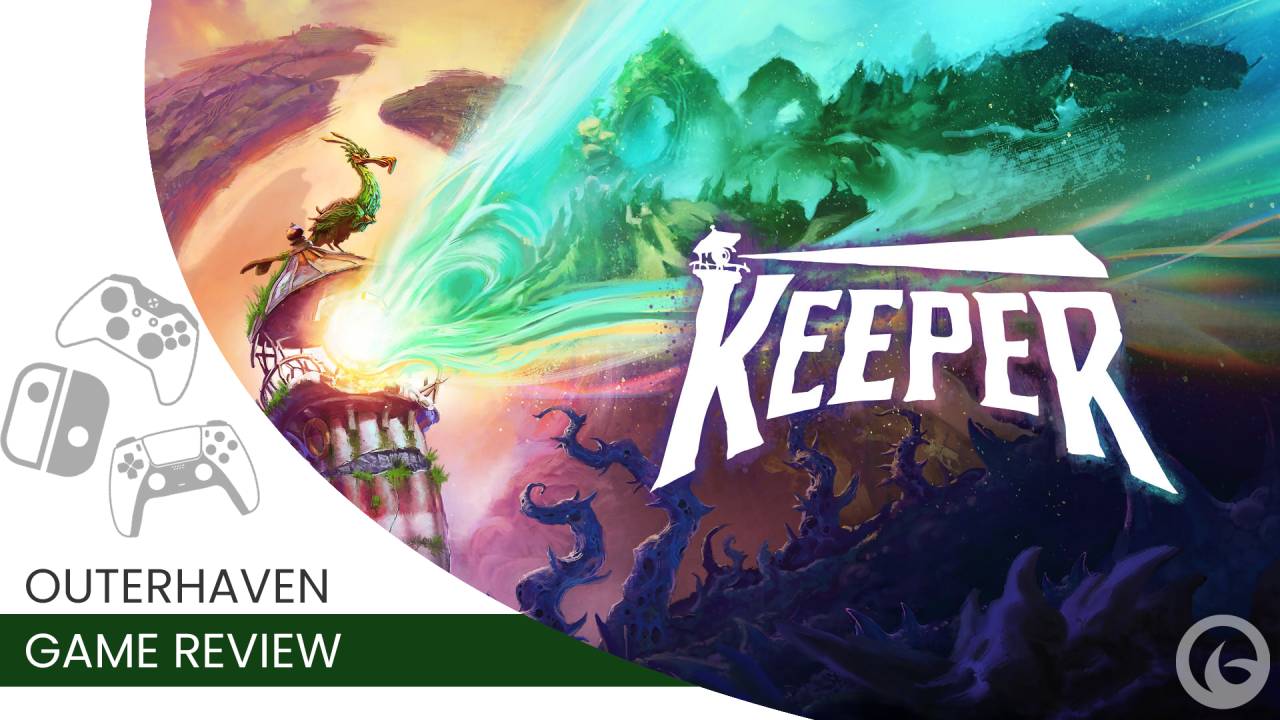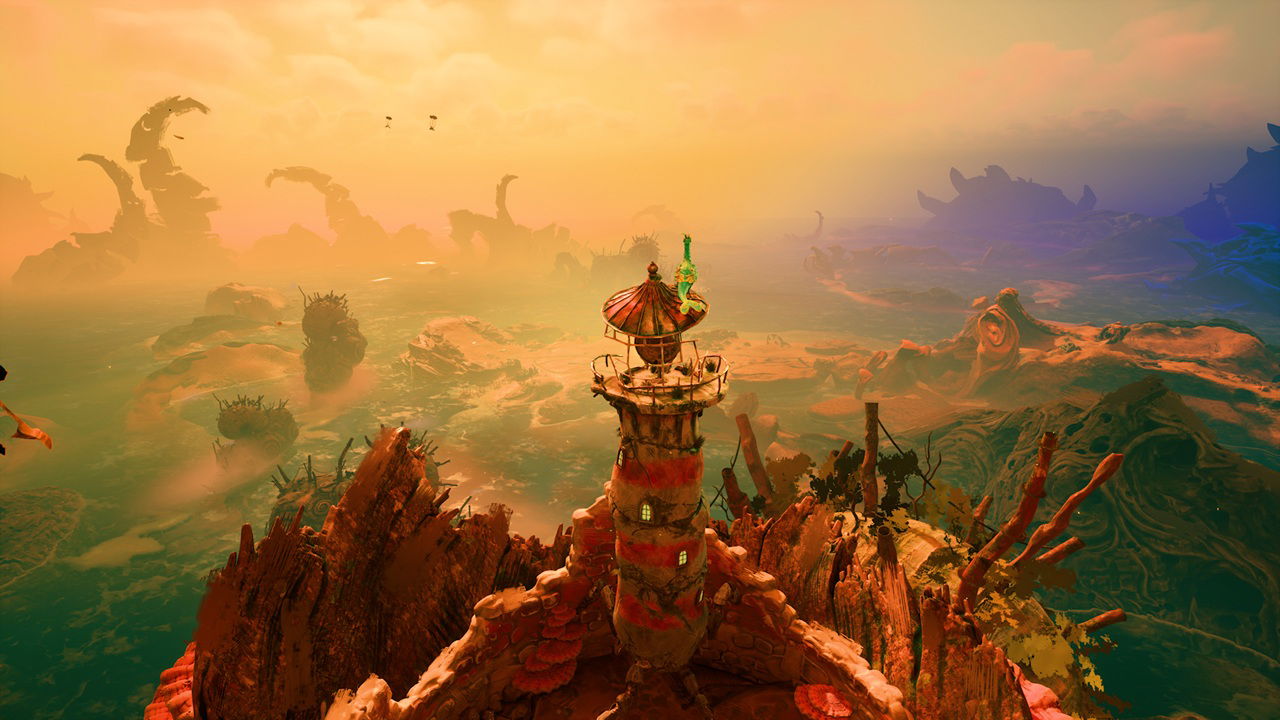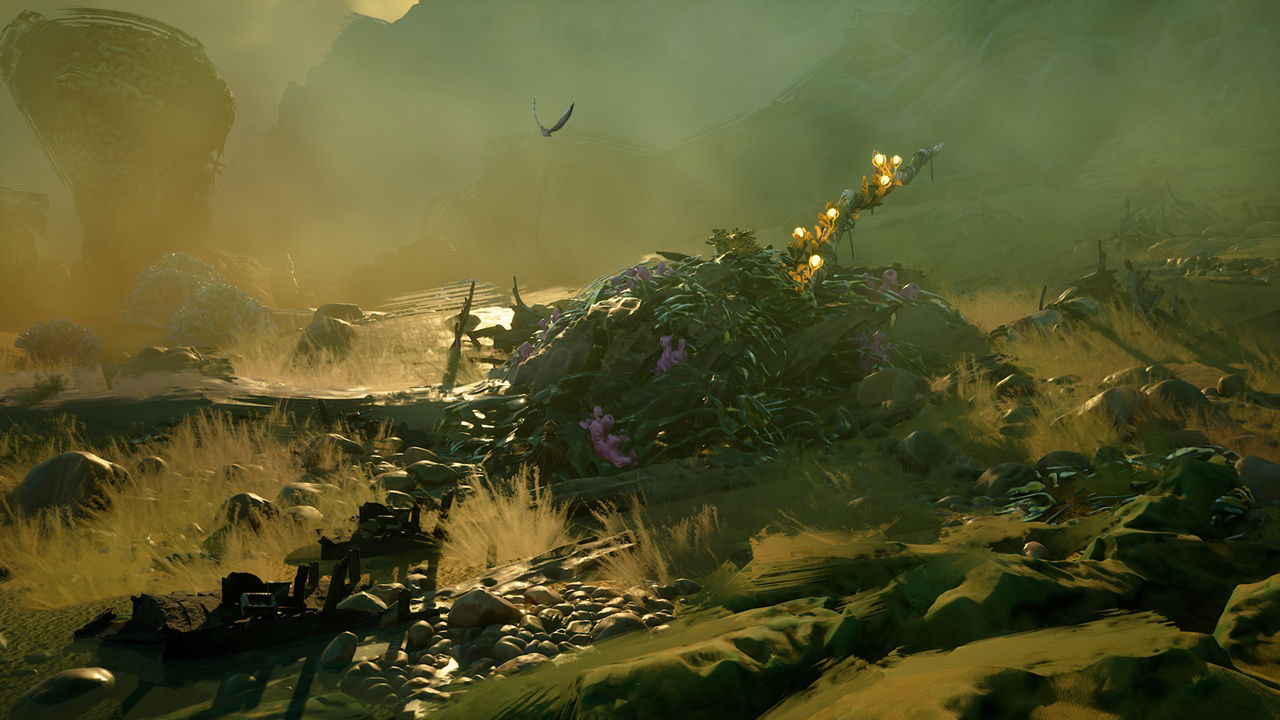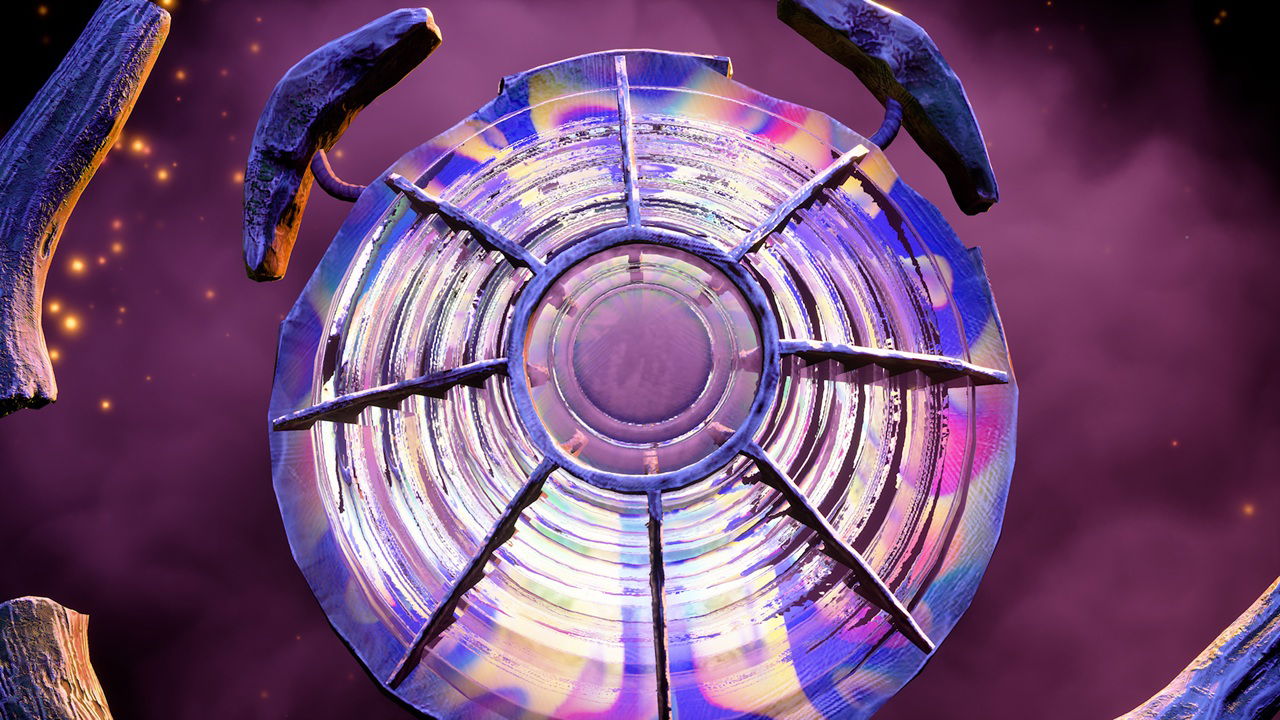Where do I even start with Double Fine’s newest IP, Keeper? It’s an amazingly beautiful game, and in The Outerhaven’s review of Keeper, we explore why it stands out as one of the most emotionally engaging experiences of the year. You’ll often find yourself simply sitting and marveling at the art and atmosphere.
Game Name: Keeper
Platform(s): Xbox Series X|S (reviewed), PC
Developer(s): Double Fine Productions
Publisher(s): Xbox Game Studios
Release Date: October 17, 2025
I’ll just say it; Double Fine has absolutely hit it out of the park. Even with zero words spoken throughout the entire game, I was emotionally invested in everything that was happening. This review will contain some spoilers; it would be impossible to explain in written form what makes Keeper so special without spoiling anything at all.
Guiding the Light
You start off as a long-forgotten lighthouse. In the beginning, it takes a moment to find your footing, and moving around like a baby giraffe was something I found quite funny. Meeting Twig and exploring with them was a joy. The way you use Twig to help solve puzzles is clever and well executed, with a surprising amount of variety in how your companion can assist you.
A lot of the puzzles center around using the light you have, focusing the light, and using Twig to pull and push things. You’re able to move with the right stick while aiming the light with your left. After a while, you get the ability to dash; something that becomes pivotal in game, smashing through vines and old pieces of wood.
Twig, and later another helper, are also vital for completing some quests. Twig is always there to grab a resource you need to help or even wind up a winch. Along the way, you encounter more friends who are needed to progress through certain puzzles.
Something I enjoyed was the movement. It felt amazingly fluid, and I never felt clunky. Sometimes, not knowing the answer to a puzzle that takes you here and there can be annoying.
A Silent Story That Speaks Volumes
Keeper’s greatest strength lies in its emotional subtlety. It tells its story almost entirely without words, relying on tone, music, and the bond between the lighthouse and Twig (your bird companion) to evoke meaning. It feels deeply personal; more meditative than dramatic.
Though no words are said, you can follow the story without issue. Subtle nods and big glaring moments definitely help, even if sometimes it takes a moment to find them. One of my favorite parts is called “The Horologe.” It makes use of time to solve three distinct, unique puzzles. It also uses Twig in a very fun way; going back in time makes them an egg, and going forward turns them into a ghost. The way the game makes you think while also making it fun is something I really admired.
During the game, you also aren’t a lighthouse the whole time. Your light remains, but you will find yourself becoming multiple things. A boat, being a main part of the story, lets you zoom around on the water, which feels very fluid and introduces new puzzle elements.
I’ve never been a fan of games that throw you in without direction, expecting you to just “figure it out.” Keeper had the potential to be exactly that, with no narration or arrows pointing you where to go, but I’m happy to say it isn’t. The game is structured in acts, and it does a fantastic job of introducing new systems and gameplay mechanics in a natural, progressive way.
Keeper’s Stunning World and Visual Storytelling
From the outset, Keeper strikes you with its eerie, surreal beauty. You play as a long-forgotten lighthouse, dormant for ages, slowly awakening on a wild, overgrown island threatened by creeping decay called the Wither, which takes the form of tendrils, brambles, and other corrupting growths.
The art direction leans heavily into dreamy, painterly textures. Environments range from glowing bioluminescent caves to misty forests, strange geological formations, ancient ruins, and otherworldly fauna. Light plays a central role; not just literally through the lighthouse’s beam, but in how it reveals, transforms, and influences the world around you.
Every corner of Keeper’s world feels alive, telling its own small story, movement, decay, growth, and rebirth. It’s like walking through a living painting that gradually wakes up as you play. This is Double Fine at its most atmospheric and introspective.
However, despite all this, Keeper can sometimes feel lonely and it’s one of the downsides to the game. I’m a very social gamer. I love being in voice chats and playing with others, so I tend to avoid single player games, especially those with no narration.
Puzzles, Patience, and the Beauty of Discovery
As I mentioned earlier, players who aren’t used to puzzle games might occasionally feel confused or disoriented. However, Keeper does its best to keep all the elements you need to solve each puzzle within the same area, which helps prevent too much frustration.
Another aspect some players might find disappointing, especially in today’s gaming landscape, is the lack of replayability. Despite enjoying what Double Fine has crafted, once you’ve finished Keeper, there isn’t much reason to return, but that’s not necessarily a bad thing for a game of this kind.
Double Fine’s Keeper | Final Thoughts
Keeper is an absolute masterpiece. It’s beautiful, scenic, entrancing, fun, and above all, accessible. It’s a game that anyone of any age can enjoy; simple yet deeply complex. I could definitely see this winning awards. It gives me strong What Remains of Edith Finch vibes, both being beautifully told stories in their own unique ways.
I had so much fun playing this game, though I didn’t originally expect that when first going into the game. Keeper, in its ability to make you think while also admiring the amazing scenery, simply captivated me. If you are someone who likes a good puzzle in a game you could also share with a younger person, this is an amazing entry point. To me, it’s a modern masterpiece, and I would without a doubt recommend Keeper to anyone who’ll listen.
I hope plenty of people get to experience this brilliantly crafted story. I would 100 percent recommend this game to everyone, no matter your level of gaming experience.
Review Disclosure Statement: A copy of Keeper was provided to us for review purposes by Double Fine Productions. For more information on how we review video games and other media or technology, please review our Review Guidelines and Scoring Policy.
Affiliate Link Disclosure: One or more of the links above may be affiliate links, which means that at no additional cost to you, we may receive a commission if you click through and make a purchase.
Keeper is Double Fine at its absolute best; a breathtaking, wordless journey that proves emotion and artistry can speak louder than dialogue.
Pros
- Beautiful Looking Game
- Mesmerising
- Simple yet Complex
Cons
- Sometimes No Direction
- Zero Narration
-
Keeper Review





